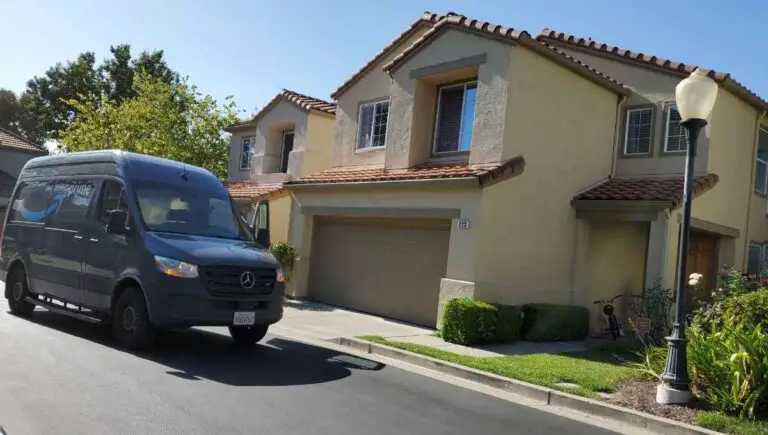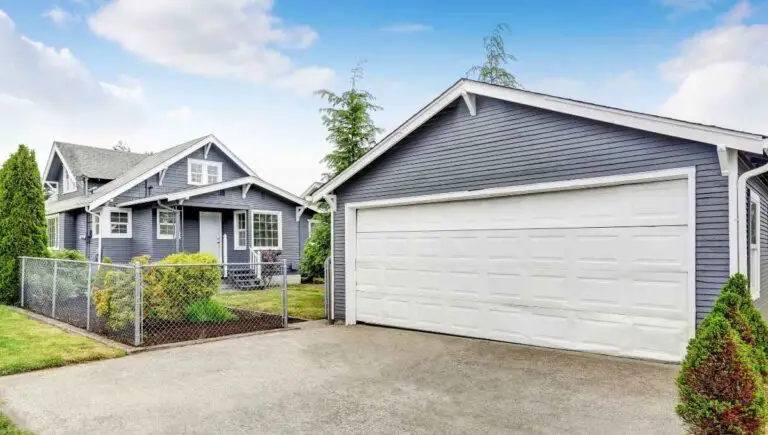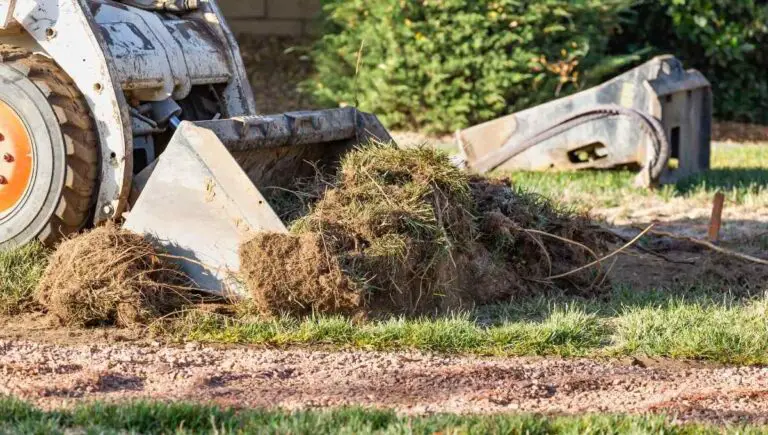Can I Dig a Well on My Property? (Check for This First)

Well water offers many positive advantages, most importantly, fewer utility bills! So, if you have been considering digging a well on your property, you need to check to see if you can legally dig a well on your property.
Before you dig a well on your property, check with your municipality to see if you need any special permits or certificates. It is important to do this so you don’t end up getting fined later down the road.
Legal permits not only give you the green light to start installing your well, but they also ensure the process is done well – specifically making sure the water quality is up to par.
In this blog post, we will dig into all you need to know before you install your well, how to install it, and how you can maintain it once it’s installed.
This post contains affiliate links from Amazon and other stores. This means Yard Blogger may earn a commission if you make a purchase using any of our links. Please refer to our full affiliate disclosure policy for full details.
Here’s a Quick Pro Tip!
Digging a well is your first step but then you need to install your well pump. Buying a quality well pump will ensure that you have the perfect amount of water pressure at all times, and water, of course!
Here are some of our favorite well pumps from Amazon:
1. RainBro Cast Iron Pump – Ideal for shallow wells
2. Deep Well Pump – Ideal for deeper wells of at least 100 feet
What You Should Know Before Digging a Well
Digging a well is a big job for anybody, let alone yourself! Let’s break down exactly what you should know before you start considering putting in a well.
How Do I Know if I Can Drill a Well on My Property?
To know if you can drill a well on your property, you should consult with a topographic map or a water table of your area. These documents will show you the best places where you can drill a well on your property.
Essentially, a topographic map, also called a topo map, shows the contours of the Earth’s surface. So, in regards to your well, it will show you where the earth slants down more towards the water underneath the surface.
Additionally, the water table mimics a topographic map yet focuses on the water instead of the contours of the Earth’s surface.
The water table can vary in different areas and at different times depending on natural and human-made consequences.
Therefore, it is important to know the patterns of the water table in your area so you can build a well that is deep enough to supply water at all times.
How Do I Find the Water Table in My Area?
To find the water table in your area, you should contact your local town hall who will likely have the statistics on your area’s water table.
Additionally, you can visit the United States Geological Survey (USGS) Groundwater Watch that tracks ground levels in certain areas across the United States.
The USGS has offices all over the United States that monitor current water table levels. In some areas, they are even updated several times a day
You might also enjoy our post on Can I Dig a Pond on My Property?
Does My City Have Regulations for Wells?
Your city most likely has regulations for drilling a well. Many areas in the United States want to ensure that safe water is being collected and also that water resources are being protected.
Therefore, it is likely that you will have to undergo a lengthy process to be able to legally drill a well.
As an example, you can check out the rules and regulations regarding wells in the state of Washington.
The department of Ecology in Washington states that you will have to submit a notice of intent and then further consult with your municipality to find out which permits you need.
Do You Need Planning Permission to Drill a Well?
You most likely do not need planning permission to drill a well but you will need a number of permits and certifications. This will depend on where you live as the bylaws enforce this.
However, if you are drilling a well on a new build, you will likely need planning permission. But, if you are drilling a well on a house that is not a new-build it is likely that you will not need one.
Do I Need a Permit to Drill a Well?
It is very likely that you will need a permit to drill a well on your property. Your municipality needs to track how much water is being utilized and if wells are being properly constructed.
Therefore, they need to assure that all well construction is being properly completed.
Many regulations are put in place to protect people from unsafe drinking water, from digging in the correct spot, and ensuring that your well is properly constructed to avoid any damages to the water system.
You might also enjoy our post on If Your Neighbor Can Steal Your Water
Should I Test the Water Before Digging a Well?
You should absolutely test the water before digging a well. It would be very unfortunate to complete the first phase of drilling into the water supply and then realize the water isn’t safe to drink.
To save you time and money, ensure that you test the water before you dig your well. It would not be ideal to hire contractors and then realize your water is unsafe to drink right before the job is almost done.
How Do I Test Water?
A simple way to test if your well water will be safe to drink is to ask your neighbors if you can test their well water. You can use a water testing kit either purchased online or provided by your city.
To test your neighbor’s water, first, obtain their permission, and then use your water testing kit to learn the results.
We highly recommend this water testing kit. It is tested at an EPA-certified lab which guarantees accurate results. The lab fees and return shipping are included for when you have to send your test water into the lab.
Things to Consider Before Digging a Well
So, now that we have covered the basics, let’s get into more pressing matters. Here is a round-up of some questions that you may be wondering.
Can I Drill a Well in My Backyard?
You certainly are allowed to drill a well in your backyard since the right to water is a basic human necessity. If you do not have access to city or rural water, you will need to drill a well in your backyard.
However, you cannot simply pick up a shovel and start digging straight to the water source. There is a process involved that typically includes obtaining permits and rights to legally construct a well and collect the water.
How Long Will a Well Last?
Your well will last as long as nature allows it to. Unfortunately, environmental issues can cause your well to run dry. But, thankfully, you can prolong the life of your well by properly maintaining it.
Apart from the obvious fact that water is not always available due to natural occurrences, the life of your well can be extended if you properly maintain it.
Perform regular maintenance checks by keeping an eye on the structure and pump system to extend the life of your well. If kept in good condition, your well will last for at least 30 – 50 years.
Can I Finance a Well?
Some drilling services provide financing to drill the well for you. If you go with a professional driller, they are more likely to fund your project and give you plenty of time to pay it back.
However, with most financing deals, you need to have decent credit. If you have good to excellent credit it is more likely that you will be approved to have your drilling financed.
Additionally, you may be able to obtain financing through federal and private sources. You should consult with your local municipality to see if there are any financial options available for you.
You might also enjoy our post on How Long Can a Dog Go Without Water
What Are the Disadvantages of Well Water?
While having a well water resource can be one of the most cost-efficient sources of water, it can come with its disadvantages. The most important one to note is possible water contamination from minerals and bacteria.
Without a proper water filtration system, harmful contaminants such as calcium, magnesium, and other harmful minerals can enter your water system.
These minerals are not only dangerous to consume in large amounts but they can also damage your plumbing and appliances.
Other disadvantages include:
- Having to replace the pumps every ten years or so
- Bad taste
- Hard water and scale buildup
- Dependant on electricity
Do I Own the Water in My Well?
Although you may own your well, the water is likely still public, depending on where you live. Specific states have a different definition of what constitutes as a public water system, but you are most likely not on one if you’re living off-grid.
This document, from the Water System Council of the United States, provides different definitions of what constitutes a public water system depending on the state.
For example, Arizona states that a water system becomes public if it has “15 or more service connection hookups or serves 25 or more people.”
Therefore, the only way your water would be private is if you live off-grid and the water system doesn’t serve anyone else.
How Long Does It Take To Drill a Residential Well?
Drilling a residential well typically takes anywhere from half a day to three days or longer. The amount of time can be affected by many factors including how long it takes to set up, difficult drilling formations, and the weather.
Additionally, if you are using drilling professionals, it will likely take a lot less time since they have experience and effective tools. If you are planning to do it yourself, it will likely take you at least three days.
You should plan to make your well during a week that is expecting calm weather without any rain or snow or any extreme temperatures either cold or hot.
How Safe Is Well Water?
Well water can be extremely safe if you have a proper filtration system. Additionally, you can ensure that the well water is safe before it goes into the filtration system by testing it with a water testing kit.
Well water can contain harmful minerals and bacteria that not only harm your health but can also destruct your piping and appliances. Therefore, having a proper filter system is necessary to eliminate these minerals from your drinking water.
Do Wells Run Out of Water?
Wells can run out of water in extreme cases. Water will fluctuate during times when there is little precipitation over an extended period of time. This typically has to last at least one season or more.
If you live in an area with four seasons, it is likely that you won’t run out of water in your well. But, if you live in drier areas it is likely that you may run out of water at some points during the year, specifically after April.
But, again, this typically only happens in extreme cases when there hasn’t been any precipitation for at least one season.
How Much Does It Cost to Dig a Well?
Digging a well can cost you anywhere from $3,500 to $20,000 or more. An especially deep well will cost you around $20,000 to $50,000.
The cost of your well will depend on your local geological conditions, specifically how far down is the water table in your area. If you need help financing your well, thankfully there are options available to you.
How Much Does It Cost to Drill a 100 Foot Well?
It generally costs $3,500 – $6,120 to drill a 100 foot well. This will depend on the size of casing that is used and if you choose to hire professionals to do the job or if you do it yourself.
On top of the building costs, you have to consider the costs of the permits that you will have to receive. Depending on which permits you need, this can cost you at least an extra $100 – $300.
You might also enjoy our post on How to Block Water Drainage From a Neighbor’s Yard
How Much Does a Pump Cost?
A good quality well pump will cost you anywhere from $150 – $350 depending on how deep your well is. For an average well, of 100 feet, the pump will cost you around $350.
For a 100 foot well, you should look into buying a deep well jet pump. We highly recommend the RainBro Cast Iron Pump from Amazon. It is reasonably priced with raving reviews that will definitely get the job done well!
How to Build a Well on Your Property
Now that you have all of your pressing questions answered, let’s get into how you should build your well!
Can You Drill a Well Anywhere?
You can drill a well anywhere on your property but you need to follow your local regulations before doing so. You also need to consider where your water table is and, additionally, ensure you don’t drill over any other utility lines.
Therefore, while it is possible to drill anywhere, you need to do some research before doing so. Consult with your local building department to learn which permits you need so you don’t end up drilling illegally.
How Far Can a Well Be From a House?
A well typically only has to be five feet from a house and other existing building structures and can be a maximum of 1000 feet away. Although, this will depend on your municipalities regulations.
To ensure that you are not breaking any laws, your well location will have to be approved by the department of health. They will ensure that there is no contamination in the area specifically that may come from septic tanks.
Can Well Water Be Found Anywhere?
Well water can indeed be found anywhere since water always lies beneath the Earth’s surface. To find out where the best place to drill a well is, you should consult with your town hall to find out what the water table is like in your area.
You can also consult with a topographic map of your property. This map will show you the contours of the Earth’s surface and specifically where the Earth drops down more towards the water table.
How Deep Should a Well Be for Drinking Water?
The golden rule when it comes to water quality, is the deeper the well, the better the well quality. On average, wells are typically 100 to 500 feet but, you can get away with as little as 20 feet.
Of course, this all depends on geographic factors. If your water table is deeper than most area, your well will consequently have to be deeper. But, in general, aim for at least 100 feet and be prepared to go as deep as 1000 feet.
How Deep Is the Average Well?
The average well is anywhere between 100 feet to 500 feet. However, depending on where you live, your well may have to be up to 1000 feet.
To get a good idea of how deep your well should be, you can consult with your neighbors if they have a well. They will let you know how deep they had to go to access water.
What Type of Pump Should I Get for My Well?
Most wells use a deep well jet pump. This is the typical type of pump that works well with deep wells that are 100 to 500 feet deep.
Deep well jet pumps are submerged in your well and provide excellent water pressure- you won’t even notice you’re on well water!
We strongly recommend this deep well pump from Amazon. It is made of stainless steel so it will never corrode and last forever.
Maintaining Your Well
So, after you put all that time, money, and effort into your well, you need to ensure you take care of it so you get the most out of your efforts. Read on to learn how to maintain your new well.
How Do I Protect My Well and Groundwater Supply?
To protect your well, ensuring its longevity, you should perform regular maintenance checks on the pump, the land around your well, and your well water.
The pump is, literally, the powerhouse of your well. Making sure it is in good condition regularly will prevent any disasters from happening in the future.
You must also protect the land around your well. Make sure that there aren’t any fertilizers, manure, or chemicals being used in your backyard. These chemicals can seep into your groundwater, which increases the chance of contamination.
What Should You Inspect During a Well Inspection?
Performing regular inspections of your well can help increase the lifespan of your well and ensure healthy water quality. To start, make sure there is no animal waste around your well.
Follow this checklist for proper well inspections:
- Keep the area around the well free of vehicles, chemical storage containers, pets, and livestock
- Ensure the well casing is 30 to 40 centimeters above the ground to avoid contamination
- Inspect the well cap to ensure it is not damaged or cracked
- Make sure your well has a vermin-proof cap
You might also enjoy our post on If You Need a Permit to Run a Gas Line
Related Questions
Can Neighbors Water Use Affect My Well?
It is possible that your neighbor’s water use can affect your well, but only in extreme conditions. If there is plenty of water, how much they are taking shouldn’t affect your well.
The only time you may notice your neighbor’s water use affecting your well is when there is an extreme shortage of water. In this case, your neighbors may be sucking up the last of the water, causing you to not be left with much.
Final Thoughts
Hopefully, by now, you have all of your questions covered when it comes to putting in a well. It is important to remember that you should obtain all necessary permits AND install a filter system to protect your health.











